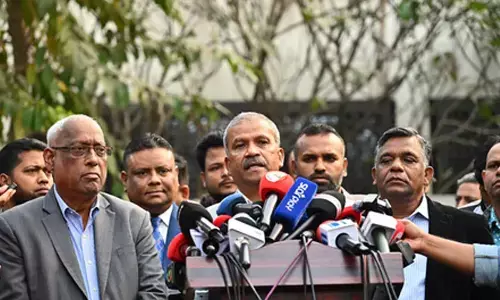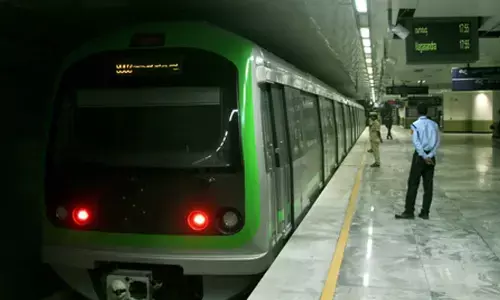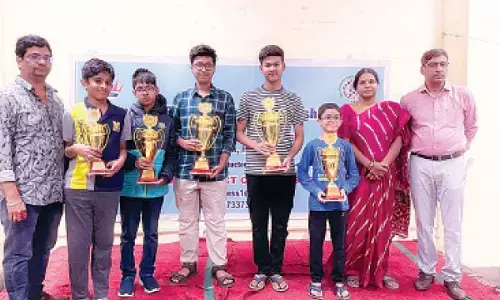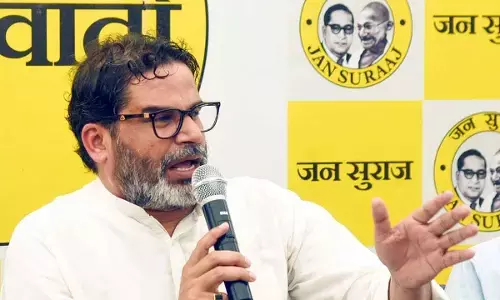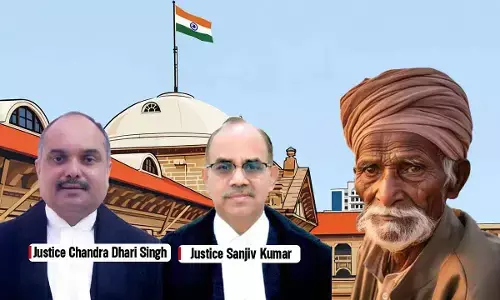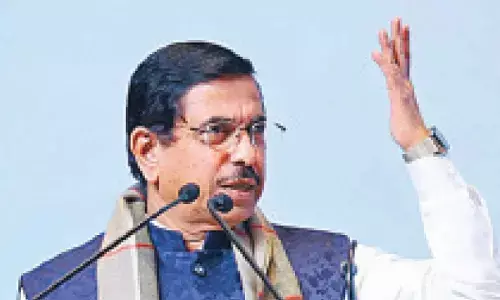“Better transport will make our homes accessible," says Bengaluru’s informal workforce
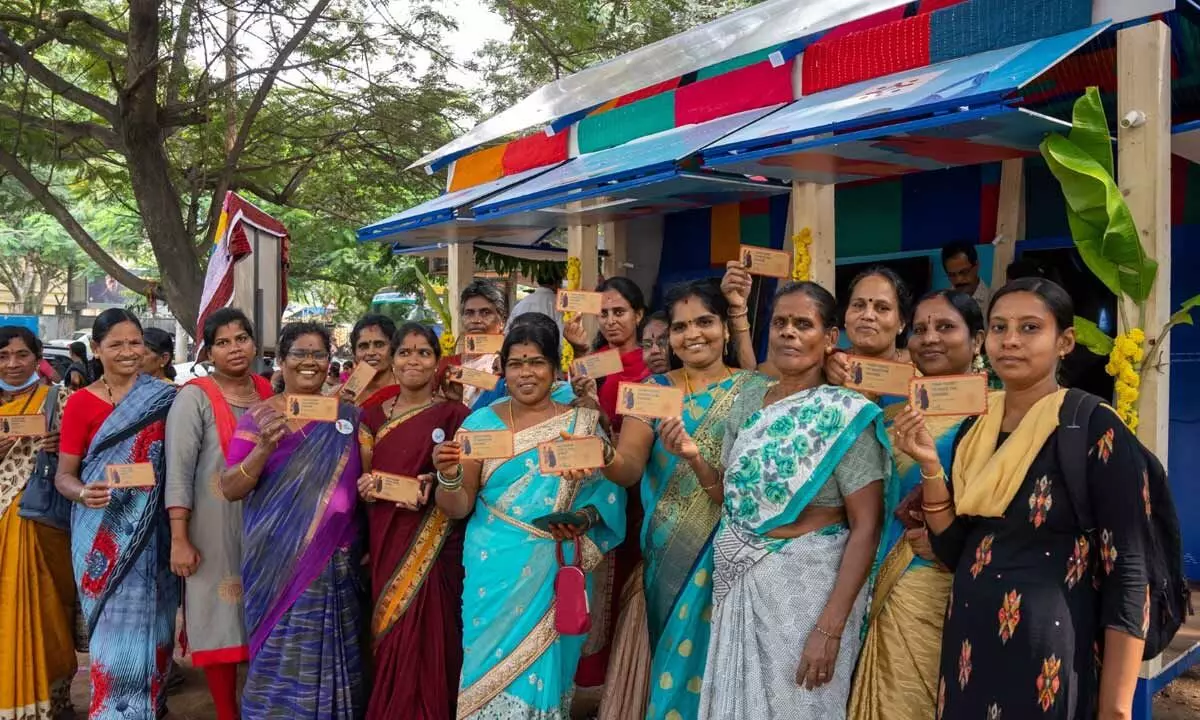
City-based women's collective, Alli Serona, is working towards an effective public transport system to make the city inclusive; drawing a new pathway from home for the informal settlement and resettlement residents.
Bengaluru: City-based women's collective, Alli Serona, is working towards an effective public transport system to make the city inclusive; drawing a new pathway from home for the informal settlement and resettlement residents.
Anitha, making ends meet as a domestic worker in the informal workforce, has been tirelessly advocating for a bus stop near her home to ease her daily commute challenges. Illustrating the fact that transportation obstacles are frequently intertwined with housing issues, she says, “I can imagine myself taking a job outside my area which pays better and I can see myself taking a bus just less than a km from my house. I would be happier and I would have a lot of free time and I would enjoy that free time for myself and for my family.”
Recognising this pressing need from Bengaluru residents living in both informal settlements, as well as resettlement colonies to address transportation challenges, Alli Serona, a women's collective in Bengaluru, recently created a symbolic solution: a collapsible bus stop to aid workers in areas with limited bus access. The Alli Serona Bus Stop installation demonstrated how sustainable transport networks can unlock the city, and the various opportunities it offers for informal settlement and resettlement residents. A safe and affordable transport network links residents of the informal settlements and resettlement areas with economic opportunities, access to services, and opportunities for mobility within the city.
With over 640 informal settlements, Bengaluru is home to a significant number of workers in the informal sector, constituting up to 44 per cent of the city's population, as per the last census conducted. Citizens living in these settlements are often excluded from policy discussions on vital topics like housing and transportation. They face multiple vulnerabilities, including unstable home ownership, limited access to transportation, as well as other essential services and amenities.
"A safe, affordable and accessible transport network offers more than just mobility; it links people to economic prospects, services, and amenities, thereby positively impacting quality of life. An effective public transport system is key to making the city inclusive; drawing a new pathway from home for the informal settlement and resettlement residents. We need to amplify the linkages between transport and housing; such that safe and affordable transport will become a natural solution for some urban housing challenges," says Kanishk Kabiraj, from the Alli Serona Collective.
A significant source of confidence for Alli Serona comes from the success and overwhelmingly positive feedback received from its Mobile Bus Stop installation and community activity across four locations in Bengaluru. Community walks and bus stop audits were conducted with over 100 women across eight communities to identify the location of these bus stops. The Alli Serona Bus Stops Installations at Hosa Nagar, AKG Colony, Seegehalli and Byrasandra not only symbolised the collective aspiration of people to be connected to the city in a safe, accessible and affordable way but also created a collaborative space for community to engage with decision makers and media.
The community activity included an interactive voting seat at the bus stop, where people could vote for bus stops to be installed in that location. The bus stops received a total of over 3700 votes from community members across locations. The installation at Byrasandra was visited by the IT director, BMTC, Snehal R (IAS), who was supportive of the Alli Serona Collective. She also promised the collective a feasibility assessment of the bus routes that were proposed by the collective. The Bus Stop installation demonstrated how connectivity and accessibility can bring a positive impact in the quality of life of women and other residents of informal settlements and resettlement areas.












